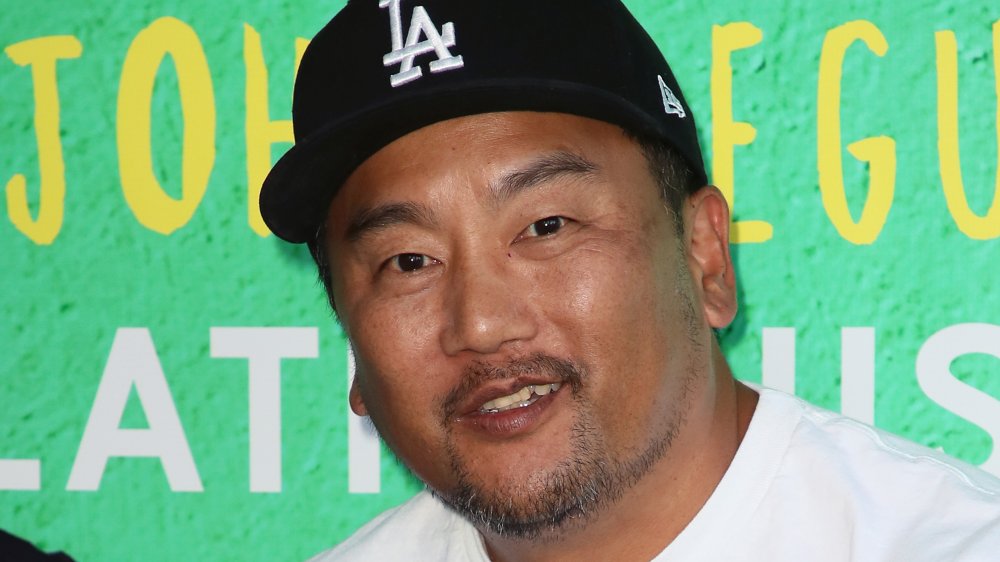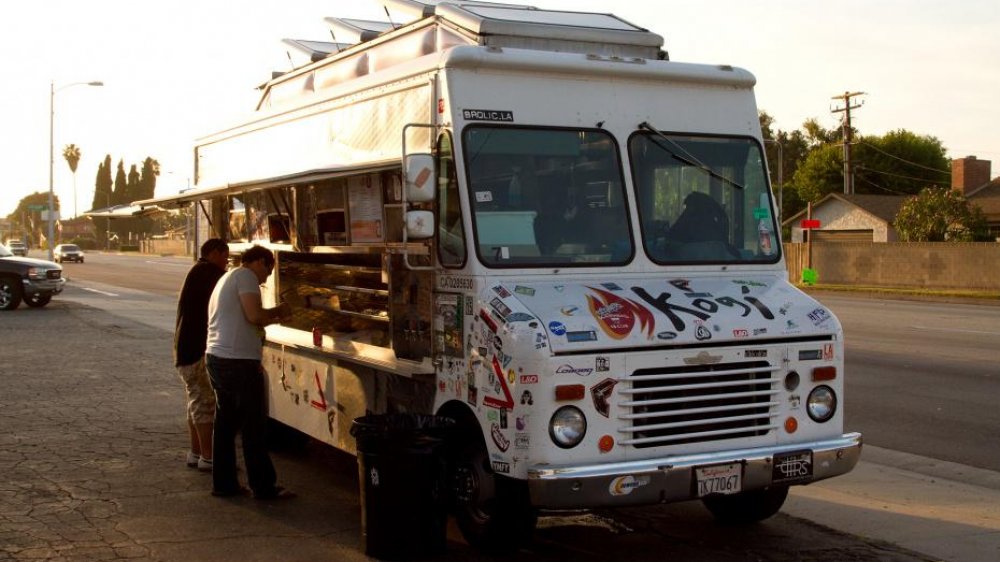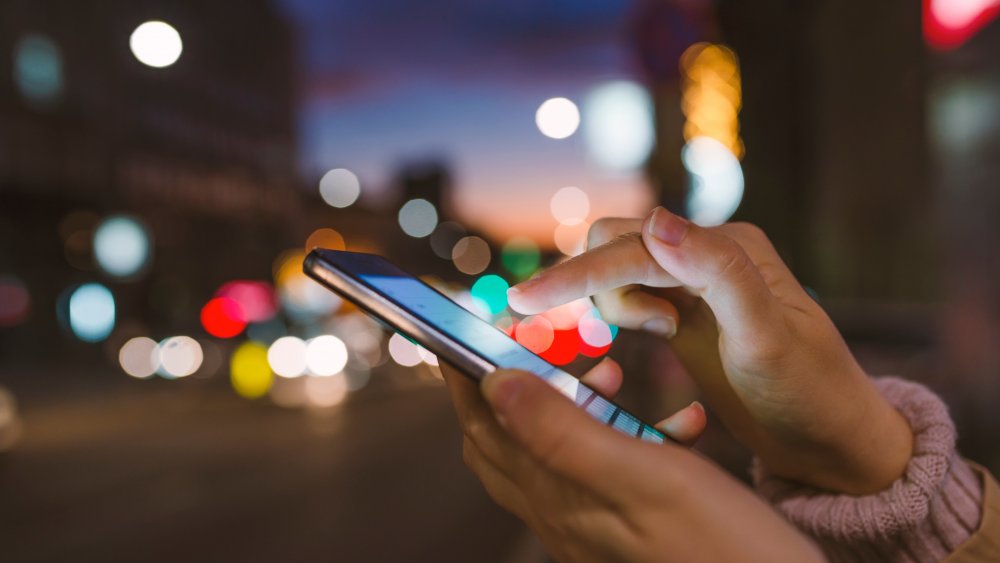How A Food Truck Changed The Way We Use Twitter, According To Kogi's Roy Choi - Exclusive
You could say that the success of his Korean food truck business, Kogi BBQ, changed things for Chef Roy Choi. Because of the cult following Choi's Los Angeles-based business has amassed — to this day, people stand in line for hours, just for a taco — the iconic director Jon Favreau made a movie, Chef, about a food truck owner, which was inspired by Choi's life. Since then, Choi has become the host of a Netflix series directed by Favreau, The Chef Show, which is now in its third season. Most recently, Choi co-hosted an episode of the new HBO Max Original show, Selena + Chef, starring the one and only Selena Gomez.
And all of this because of "a humble little Korean short rib taco that met Twitter in the middle of the night in front of a nightclub in Hollywood," as Kogi BBQ's website describes the business' launch in 2008. But as much as Kogi BBQ has changed Choi's life, Kogi BBQ has also changed Twitter itself. In an exclusive interview with Mashed, Choi explained how the food truck's innovative social marketing tactics transformed the way people use this social media platform, which had been only two years old when Choi's truck sent out its first tweet (per The Street).
Kogi BBQ and Twitter both became popular because of the recession, Roy Choi says
According to Choi, the launch of Kogi BBQ and the emergence of Twitter were both fortuitously timed, because they coincided with the burst of the real estate bubble. "It was very much like now, except in different circumstances. We were in a crisis, and at that time as a country, it wasn't a medical crisis, but it was a financial crisis," Choi explained, comparing the recession from 12 years ago to the current pandemic. "And what happened in '08 is, the real estate crisis and everything crumbled, tens of thousands, if not hundreds of thousands of people lost their jobs, just like now. People didn't know what to trust, what to do, where to go. A lot of things were crumbling around us," he recalled.
That's why social media was such a welcome distraction then, Choi explained. "Technology was emerging, separately at the same time that everything was crumbling. So the iPhone just came out, and Twitter had just come out," he said, adding that pre-Twitter, people were not yet "communicating second by second with each other, on a mobile basis," like we do now. But all of that was about to change.
Meanwhile, Kogi BBQ's launch was also well-timed for a recession. "Kogi came at that right moment, where people couldn't afford to go out all the time," Choi said. "Expense budgets were being cut. People were struggling, lost their jobs, looking for what their next meal could be. Maybe even what their next career could be." A delicious but inexpensive meal from a food truck hit the spot without hurting the wallet — and the added dimension of trying to hunt where the food truck might be parked next made for a cheap but fun date night.
Kogi BBQ did something other brands weren't doing then, Choi says
To let customers know where to find a Kogi BBQ truck — the locations moved from day to day — the business began announcing their location of the day on Twitter. They also served up some fun banter with Twitter users, Choi added. "And then this funny little beat-up truck came along, serving this delicious little taco, and then posting our locations on Twitter. And it just all made perfect sense," he said. "I think the one thing that really captivated everyone was that it felt like a scavenger hunt where we needed some sort of positive direction."
These viral tweets were novel in those days, Choi explained. "Outside of the Silicon Valley community, a lot of people didn't know what to use Twitter for. We weren't programmed at that stage to just say, 'my toenails are long, send that to the universe,' you know what I mean? It wasn't what we were doing yet," Choi said. "Or 'my farts smell,' whatever."
For the past decade, people have sent out these kind of stream-of-consciousness updates, Choi said, but until Kogi BBQ began tweeting out casual, fun, unscripted posts, no brand really knew how to use the social-media-platform-that-isn't-Facebook-or-MySpace, which is all that Twitter was back to most users then. "Kogi was posting these things, and so it helped people figure out how to use Twitter in a way," Choi added. "And it also gave people an escape. We did both of those things accidentally, and that's what made it so pure and so amazing."
Catch the HBO Max Original Series Selena + Chef to see Selena Gomez banter with Chef Roy Choi and nine other master chefs. Streaming now!


